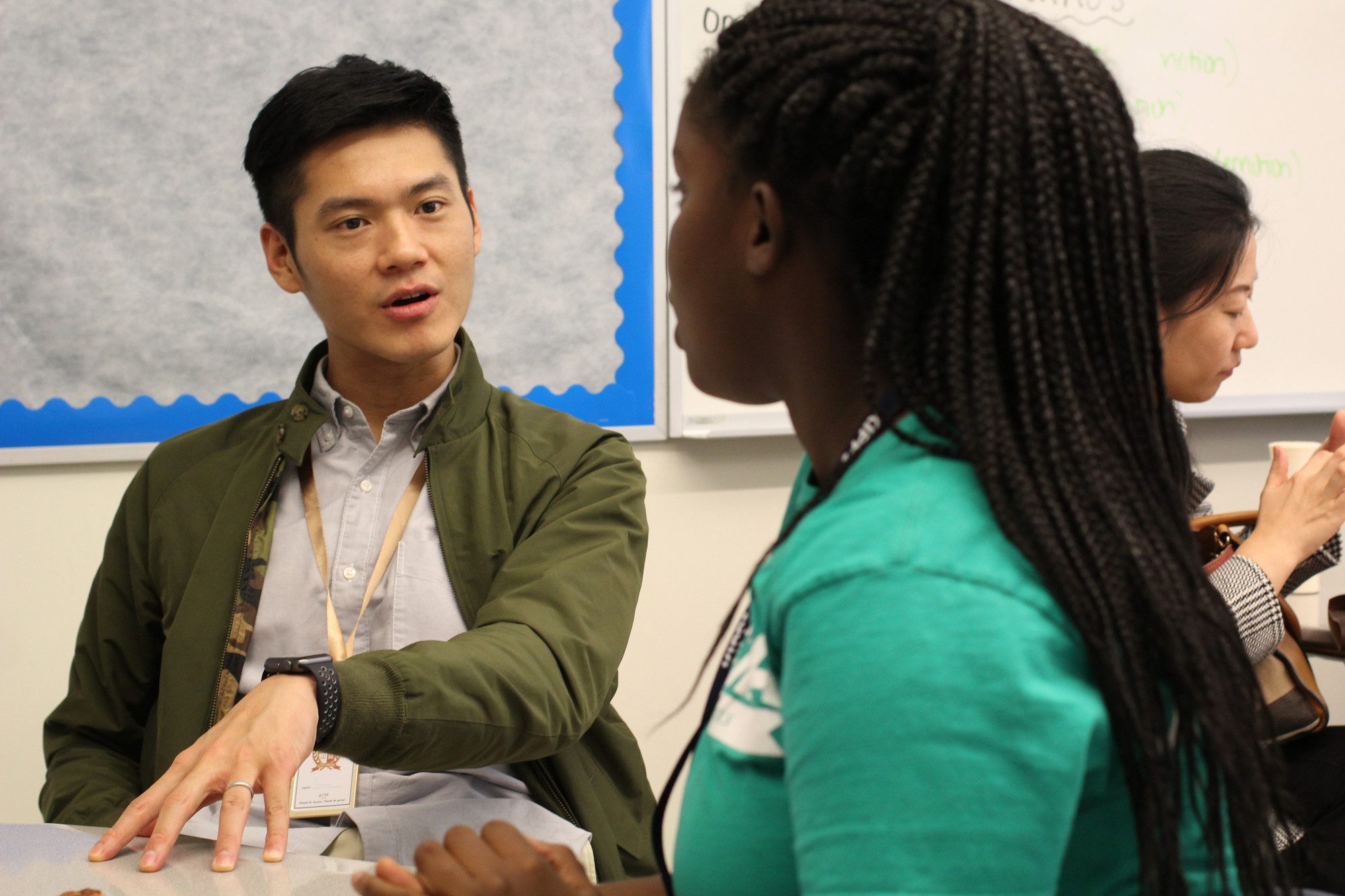LYNN — A team of educators from China spent Monday touring KIPP Academy Lynn schools, with a goal of bringing American teaching methods back to schools in their country.
The 24 Chinese educators, known as teacher trainers, will spend the week touring different types of schools in the metro Boston area, including charter schools such as KIPP, public schools, independent schools, and a graduate school of education, meant to show the team different models of education in America.
KIPP Academy Lynn was their first stop of the week. The school owners and principals spent the morning at the elementary school and the rest of the day at the high school, observing classes and interacting with students.
Paul O’Sullivan, co-founder of Acquisition Teaching Method (ATM) English, said education in America is the most advanced in the world, whereas the Chinese education system is limited.
In China, O’Sullivan said the government tells schools how to teach. Students are taught to be prepared for the test, as part of the Gaokao system. The Gaokao is the National Higher Education Entrance Examination, which directly determines what universities students can attend.
The system, where students memorize as many things as possible to be prepared for the test, is outdated, O’Sullivan said, and not very popular. What’s hypocritical, he said, is that the government determines how schools are taught in China, but the top government officials often send their children to schools in America, where there is more freedom and choice for students.
“It’s not innovative the way American schools are innovative,” O’Sullivan said. “KIPP is very unique because they’re very transformative in education.”
America has a skill-based curriculum, while China has a result-based curriculum.
O’Sullivan said the KIPP system would work well in China, with a focus on a prescriptive teaching method. He said KIPP works with low-income kids to bring their test scores up.
The visiting educators are mostly from private schools, where American methods of teaching can be incorporated, because they’re not regulated in the same way as public schools in China, O’Sullivan said.
Christiana Lee, co-founder of ATM English, is a best-selling author and known as one of the most famous trainers of English teachers in China.
Lee said before the educators visited schools in America, their impression was that there was too much freedom in American classrooms. The impression was that Chinese kids were well-behaved and American kids were wild.
“After KIPP, the myth broke,” Lee said. “Kids can have freedom, be creative and well-managed. It’s very insightful.”
This is the group’s second year visiting KIPP schools. In addition to Boston-area schools, the group also makes two other stops each year to schools in New York and Silicon Valley in California.
“They have to get rid of the test,” O’Sullivan said. “(I’ve) never met a single Chinese person who likes it. We are pushing change in China from the grassroots level.”
Laurie Kennedy, senior director of development for KIPP, said the visit was unique for KIPP, as the school often shares its knowledge with other schools in the area, but it was interesting to share their methods with educators from a different country.
Another unique component about the visit, Kennedy said, was that KIPP students were able to share their school experience with the Chinese educators, and also share who they are outside of school.
In China, she said students take a test to determine where they will go for higher education, but at KIPP and in America, students are able to follow their passion and do what they want to do.

